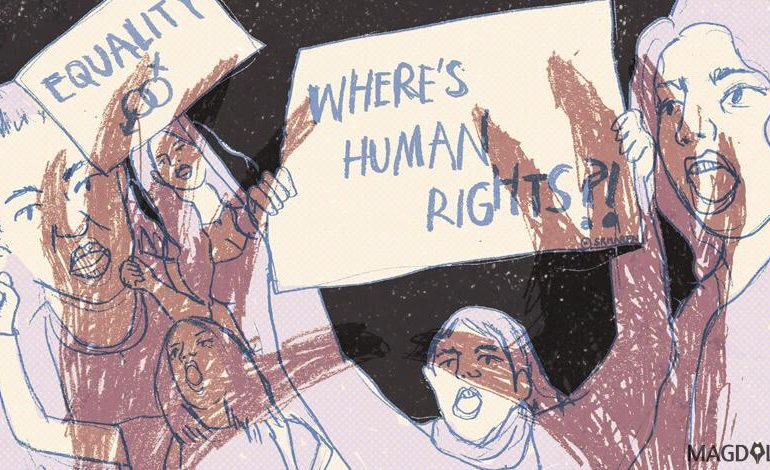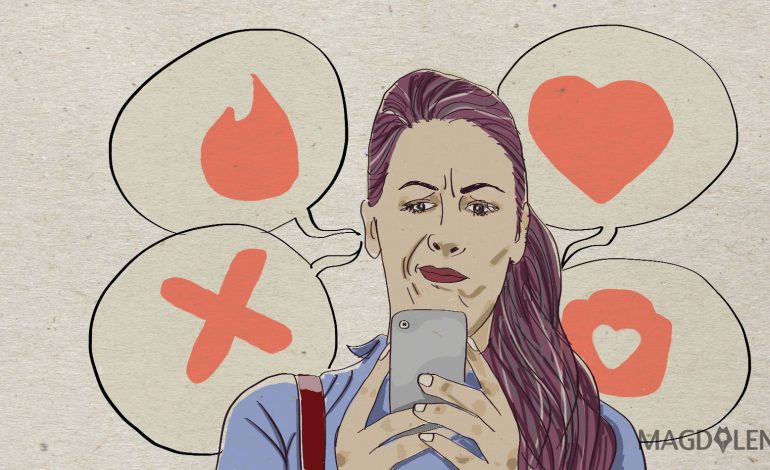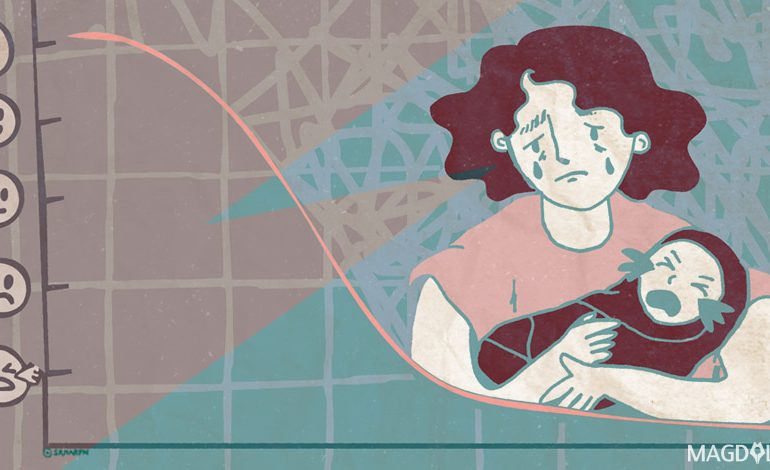Ahed Tamimi’s Resistance Should Remind Us of Our Anti-Colonialism Stance

Ahed Tamimi, a Palestinian teen arrested for slapping and hitting an Israeli soldier, has been released after serving eight-month imprisonment in an Israeli jail. She has made a statement from her house, vowing the continuance of her resistance against Israeli occupation.
Like many incidents related to the Israeli-Palestinian conflict, her arrest has become a burning topic in Indonesia, with many upholding her as an icon of resistance. Still, for those who admire her zeal, there are also many who criticize her for employing a violent approach. Calling Tamimi’s action violence amidst the obvious physical oppression of her people, however, is plain absurd, not to mention a distraction from the real issue.
Israeli occupation is the actual violence and, in my view, in time of a systemic oppression, what Tamimi did was, indeed, a form of resistance that reflects the anguish of a community whose rights have been grossly violated.
Unlike Malala Yousafzai, who utilized journalism as her means of struggle, Tamimi use her hand to slap and hit a heavily-armed soldier. Critics claimed that she has been taught to glorify violence by her extremist parents. Furthermore, they suggested that Palestinian children are susceptible to exploitation by anti-Israeli forces, leading them to participate in projecting a negative image of Israel
The slap is not the first “provocation” Tamimi has committed against the Israeli soldier. More videos have shown that since she was younger she has been physically provoking Israeli soldiers. This information has been used to further prove the violent nature of the teenage girl.
In a place where the oppressor built a 200 km long apartheid walls, is using excessive force against unarmed civilians, and continuously expanding its territory by taking up other nation’s land – all of which were condemned by the United Nations – it is unrealistic to expect the children who are the victims of this cruelty to sit peacefully and learn that donkeys bray while cows moo. These children have been learning about occupation and violence as their daily routine, whether they like it or not.
Consider Nawal Jabarin, a 12-year-old Palestinian who lives in a cave with her family. She has seen her brothers getting beaten by Israeli soldiers with the heel of their guns as they were forcing her family out of the cave. Her father has also been battered by the Israeli settlers in front of the children.
Waleed Abu Aishe, 13, has been called “donkey” and “dog”, and is often chased by Israeli children. A female member of his family has been harassed and called a “whore” by an Israeli woman. The video of the incident was broadcasted on TV, causing public condemnation in Israel.
Tamimi herself could not count how many times she has been hit with tear gas. Since Israeli settlers seized the spring in her village of Nabi Saleh, people have started weekly protests. In the series of protests, two villagers lost their lives, while 350 others, including Ahed who was shot in the wrist by a rubber bullet, were injured by the Israeli soldiers. Her father has been imprisoned nine times since she was born, her mother has been detained five times since the series of protests begun, and her uncle, Rushdie Tamimi, was killed after with 80 bullet holes by Israeli soldiers.
The experiences of these children, which are reported by The Guardian, show how they don’t need their parents to teach them about violence: they have experienced it first-hand from their oppressor.
According to the UN, the occupation of the West Bank, East Jerusalem, Gaza and the Syrian Golan, has displaced generations of Palestinians, forcing about 5 millions of them to grow-up in cramped refugee camps and fall into poverty. They have little or no hope of giving a better future for their children.
On March 30, when Palestinians held a peaceful protest to commemorate the 70th anniversary of the Nakba – the displacement of Palestinians when the state Israel was established, unarmed protesters were greeted with tear gas and sniper fire. According to Amnesty International, 2,000 people were injured and 38 dead, including children. Since 2000, B’Tselem, Israeli Human Rights organization, has recorded 8,166 Israeli-Palestinian-conflict-related deaths, of which 87 percent were Palestinians.
Clearly, slapping one’s face, or a social media status, is hardly violence when compared to the atrocities committed in the name of the occupiers.
The Indonesian government has always been clear about its support for the independence of Palestine out of its anti-colonial solidarity. In 1955, Indonesia was one of the organizers of the Asian-African Conference, an event attended by 29 countries, most of which had just gained their independence except for Palestine. As the event aimed to oppose colonialism and neocolonialism by any nation, it is reasonable that Indonesia and Pakistan strongly opposed Israel’s participation in it.
In the Asian-African Summit 2015, Asian-African leaders reaffirmed full support of the Palestinian people’s struggle to regain their self-determination. In the 5th Extraordinary Summit of Organization of Islamic Cooperation in Jakarta President Joko Widodo urged OIC member countries to “take concrete actions to urge Israel to end its colonization to Palestine.”
As a nation that experienced the horror of occupation, Indonesians are familiar with the fact that the heroes they celebrate today were once demonized by the oppressors. Such national heroes include women like Cut Nyak Dien, Christina Martha Tiahahu and Keumalahayati. Tamimi’s resistance should remind us of these courageous women who have fought bravely to defend their land from the colonizers.
But the current discussion on the Israeli-Palestinian conflict has involved more Indonesians with conflicting opinions, affected by the current socio-political condition in Indonesia. Conservative Muslim groups express their staunch support for the Palestinians out of religious solidarity. Ironically, it is also the conservative Muslims who have been behind the persecutions and harassments of religious, racial and sexual minorities in Indonesia. As a result, support for Israel has started to emerge as a form of defiance against these Muslim hardliners.
We need to remind ourselves of the history of our country’s support for Palestine, which is based on solidarity towards other colonized nations, as this is the only way to keep Indonesians’ voice united to support the Palestinians’ struggle. Without the support of other nations, including Palestine, we would not have gained our independence as a sovereign and dignified nation that we are today.
Supporting the Palestinian struggle based on exclusive religious sentiment will only divide our voice. We need to be reminded again of our own history of fighting the colonies. Indeed, Ahed Tamimi is David who has been fighting against Goliath. She is, without any doubt, an icon of resistance, and we all must stand on her side.
Januarsyah Sutan is a tutor and writer living in Jakarta. His articles have been published in the Jakarta Post and other news outlets.






















